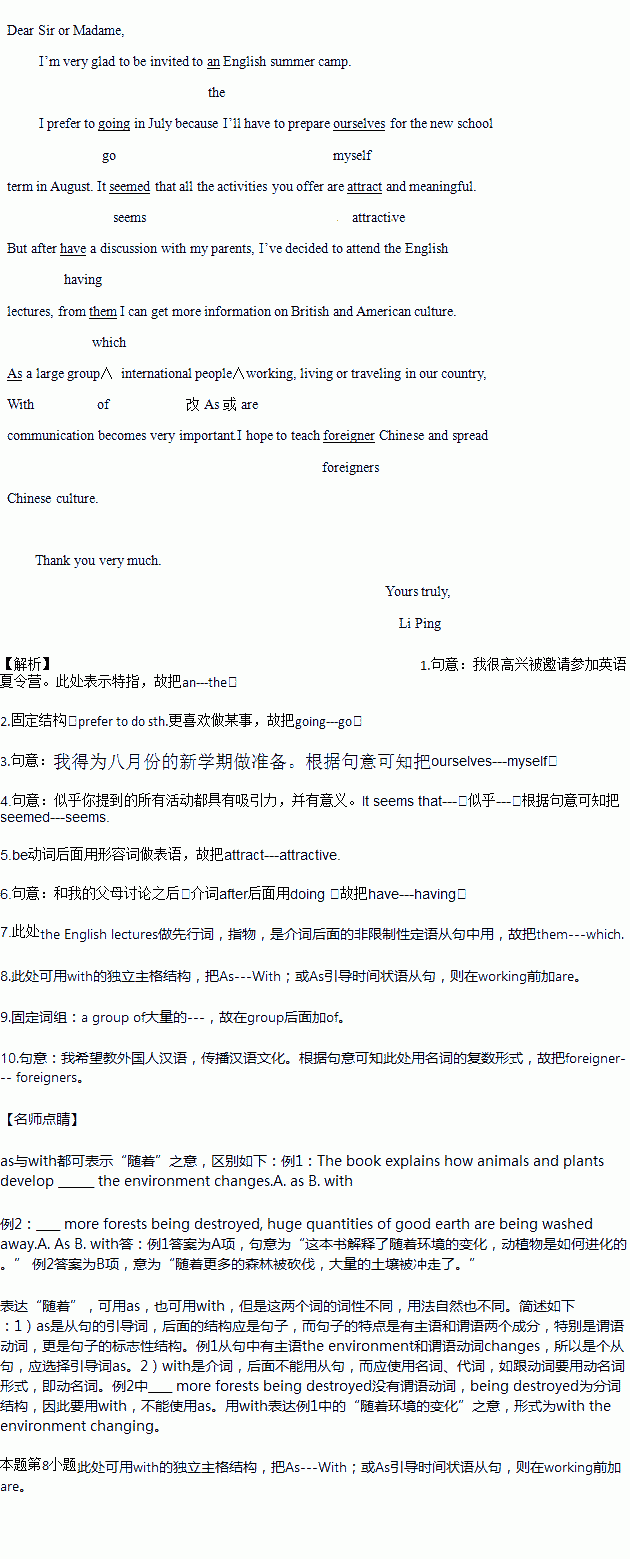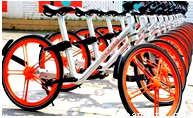题目内容
假定英语课上老师要求同桌之间交换修改作文,请你修改你同桌写的以下作文。文
中共有10处语言错误,每句中最多有两处。错误仅涉及一个单词的增加、删除或修改。增加:在缺词处加一个漏字符号( ),并在其下面写出该加的词。
),并在其下面写出该加的词。
删除:把多余的词用(\)划掉。
修改:在错的词下画一横线,并在该词下面写出修改后的词。
注意:1.每处错误及其修改均仅限一词;
2.只允许修改10处,多者(从第11处起)不计分。
I’m very glad to be invited to an English summer camp.
I prefer to going in July because I’ll have to prepare ourselves for the new school term in August. It seemed that all the activities you offer are attract and meaningful. But after have a discussion with my parents, I’ve decided to attend the English lectures, from them I can get more information on British and American culture. As a large group international people working, living or traveling in our country, communication becomes very important. I hope to teach foreigner Chinese and spread Chinese culture.
Thank you very much.
Yours truly,
Li Ping


 iticized(批评).
iticized(批评).